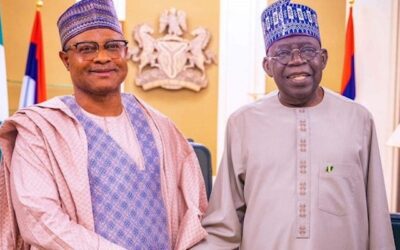N3trn Will Be Required To Sustain Fuel Subsidy – Zainab Ahmed

The Minister of Finance, Budget and National Planning, Zainab Ahmed, on Wednesday 26th of January, 2022 in a statement, addressed the media on the adjustments that have been made to accommodate the N3 trillion bill presented by NNPC.
The bill was presented by the Nigerian National Petroleum Company (NNPC), and is directed towards maintaining the subsidy of fuel for an additional 18 months.
The Federal Executive Council (FEC) held a meeting to deliberate on the 3 trillion naira bill. Prior to the introduction of the bill, only N443 billion was budgeted to fund the subsidy from January to June, in the year 2022.
Considering several factors, including the poverty rate in Nigeria, the NNPC requested N3 trillion from the finance ministry for the year 2022.
“What this means is that we have to make incremental provision of N2.557 trillion to be able to meet subsidy requirement which is averaging about N270 billion per month.” Zainab Ahmed said.
The bill, which has been deliberated on by the FEC and approved by the presidency, is set to be presented to the National Assembly for amendments to be made, before it is passed into law.
The minister revealed that the FEC also approved an amendment that would result in the nullification of clause 10 and clause 11 regarding the Economic and Financial Crimes Commission (EFCC) and the Nigerian Financial Intelligence Unit (NFIU) operations in the budget for the year 2022, as well as restore the N103 billion which the lawmakers had deleted.
“The second memo we presented to the council today has to do with a request for approval of the 2022 appropriation amendment. If you recall, when the president signed the 2022 appropriation into law on the 31st of December, he had raised some concerns in the budget and had indicated that he will be submitting an amendment proposal to the National Assembly for them to effect improvements in what has been done to the budget.” Zainab Ahmed said.
She stated, in response to whether the Federal Government would be in breach of the PIA with the continuous payment of subsidy that the realities of today must be considered, and the PIA would need to be adjusted.
“In the case of the budget, we’re looking at extending to December in the first instance, because this budget year is January to December and we’re going to engage the NNPC to further interrogate the request that they presented with a view of trying to see how we can scale it down so that the country will not incur N3 trillion for fuel subsidy.
“We agreed with the views of governors, that there is a need to scale down on the size. So even as government is immediately removing the fuel subsidy, we have to make sure that what the nation is incurring is efficient, and that it is real cost that has been consumed by the country.
“How we fund it? So we’ll have to reduce it from N3 trillion and that is one. Secondly, also we have been running reconciliations with NNPC to reduce the cost. But also we have several reconciliations with NNPC and NNPC itself is owing in some cases, government.
“So we want to be able to settle some of the subsidy costs through this reconciliation process. So when we’re done with that, whatever is left that we’re not able to apply to what NNPC is owing the federation will not be increasing the deficit. And that means increased domestic borrowing. But we haven’t finished reconciliation. This is just the second day that this happened, and we are working.” Zainab Ahmed explained.


